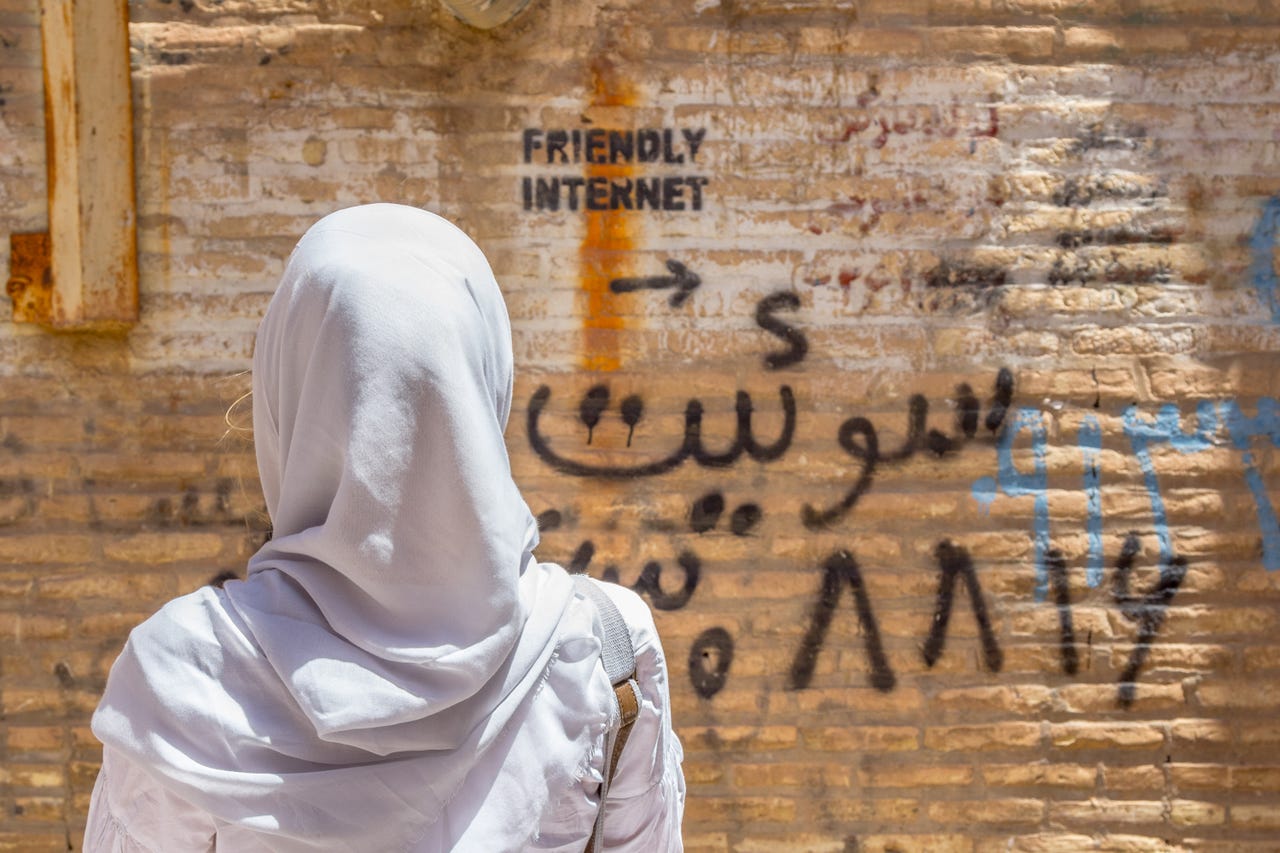Iran's tech boom: Amid blocks on Apple, Facebook, Google, new apps are emerging


The number of internet users in Iran rose by 21 percent last year, but only 40 percent of mobile connections are currently on 3G and 4G networks.
"I want the world to look at Iran as a positive opportunity," says Niki Aghaei a creative consultant in Tehran, as she outlines how her home country has undergone massive digital and tech growth in the past few years.
According to data published by We Are Social, the number of internet users in Iran increased by 21 percent last year, driven by a surge in 3G and 4G users. In a country of 80 million people, despite this uptake, there remains considerable scope for growth, given that only 40 percent of mobile connections are currently on 3G and 4G networks.
The development of new services, local startups, and in-app services within popular messaging applications like Telegram may all help to maintain this momentum.
"We have 40 million active downloads for Telegram in Iran," Aghaei says, remarking how "people are running their business all online" through a combination of "Telegram, Instagram and their websites".
This type of online capability, although more established in many other markets, remains relatively new in Iran. "Transitioning into the digital world has happened within a short time span," Aghaei says, to the extent that most people outside the country "don't even know we have a digital world".
It's a misconception that she, and others, such as the team behind Iranian tech website Techrasa, which writes about startups, entrepreneurs and other digital developments in the country, are keen to remedy.
One key driver for increased digital engagement has been the emergence of competition between Iran's telecom providers.
Writing Techrasa, Mohammad Reza Azali noted earlier this year that: "It was only in August 2014 that MCI received its 3G and 4G license along with Irancell after three years of Rightel's exclusivity on providing 3G services in the country."
As another contributor, Alireza Jozi, reported, data from Iran's ministry of communication reveals that MCI has gained 12.8 million 3G subscribers in under three years, whilst Irancell signed-up just under 10.5 million 3G subscribers and 1.6 million 4G consumers. In contrast, Rightel, which held a 3G monopoly, has just under two million 3G and 4G users combined.
"In a matter of four years, we have 48 million active mobile users in Iran using applications, using the internet, [and] browsing through the net. It's ridiculous the change in the behavior of users online. It is crazy. From one year ago to now, it's completely different," Aghaei says.
One area that has evolved quickly during that time is online transportation. "We have an Uber-like app called Snapp or Tap30. Or another one called Carpino. They're all working as an Uber-like app. Everyone uses it in Tehran," Aghaei says.
Online banking is another area that Iranians have readily adopted, a finding that surprises many people outside the country.
"The biggest misconception is that they [people outside Iran] think we don't even use the internet, or that we're not active on social media. They think that we don't have these platforms [and] that we don't use them," she says.
"They're like, 'Oh my gosh, really'? Iranians use Instagram? There are 15 million users on Instagram in Iran? The engagement rate is triple in comparison with North America? Wow."
"All these digital activities have been implemented in about four years," she says. "We never had this stuff a few years back," she says, adding, "I don't see another example in the world of this [type of] quick transition."
Increased competition and greater availability of mobile broadband has clearly been one factor in this success, but Aghaei identifies other characteristics that have also shaped these digital developments.
"Iranians like simplicity," she says. "Whatever makes their life easier they'll take up without question." Take-up of online banking has not been affected by the same security concerns seen in many other countries.
One reason for this willingness to use new apps, Aghaei believes, is time.
"People spend three to four hours a day in traffic in Tehran," she explains. "Tehran has over 12 million people in it and on a daily basis that rises up to 13 or 14 million. The ease of doing everything online is that you don't have to spend another half hour or another hour in traffic to make your payments."
Online banking isn't the only response to local challenges. With many well-known services such as YouTube, Facebook, as well as Google and Apple's App Stores, blocked in the country, Iranians have often developed their own equivalents, or tweaked existing platforms, to suit their particular digital needs.
Perhaps the most visible example of this phenomenon is in their usage of popular messaging app Telegram. Home to everything from group chats, to the sharing of music and video content, the service is also used for news, digital marketing and e-commerce.
"The cool thing about Telegram is that you have channels, you have groups, and you have bots where you have hundreds of thousands of members who come and read your posts," Aghaei says.
"News agencies all have Telegram channels and Instagram pages, and a lot of airline agencies use Telegram bots for bookings. So you can practically search for your flight and put in your payments and you're done. You get your booking.
"Our nation has adapted Instagram and Telegram for their use, and it's really interesting to see a country with over 80 million people grab these two applications and make them their own."
With 60 percent of Iran's population aged under 35 years, many of Iran's youth are not just avid consumers of tech but are increasingly keen to harness it for their own careers, too.
"The startup world is growing and growing We're a highly-educated population, and there are so many talented engineers and artists," she says. "Different startup communities are popping up from Isfahan to Shiraz. They're all having these startup weekends to educate the youth on the opportunities they have."
She says the government is beginning to push for entrepreneurs and entrepreneurship. "They have created grants, they are growing the tech area and the funding for it, and this is a great opportunity for young people and to create jobs."
"I'm so passionate about it," Aghaei says, reflecting on both the future and the pace of change the country has already seen. "It's been such a cool experience to create a new digital world for the Iranian people."
More on Middle East tech
- Amazon buys the Middle East's largest online retailer to enter the region
- Middle East's digital makeup: Here are seven key findings on region's tech trends
- Microsoft's new Middle East chief: Why cloud and security are our big focus
- Microsoft's Middle East chief: 'Cloud, big data, IoT are only part of the story'
- Where is the Middle East winning and losing in tech?
- Year of upheaval: These are the trends shaping Middle East tech